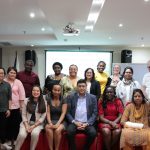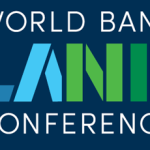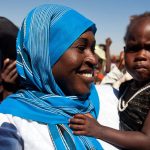| ORGANIZATIONAL LOCATION: | UN-Habitat |
| DUTY STATION: | Home based |
| FUNCTIONAL TITLE: | Part Time Consultants: Python Developers to support the customization and implementation of Social Tenure Domain Model tool |
| CONTRACT TYPE & DURATION | 3-4 months (spread over 5 months); extension is possible |
| CLOSING DATE | 03 August 2018 |
BACKGROUND
The Land and GLTN Unit, located within the Urban Legislation, Land and Governance (ULLG) Branch of UN-Habitat, has the mandate to develop, test and disseminate pro-poor and gender responsive approaches in regard to rural and urban land, innovative residential tenures, affordable land management/administration systems, and land related regulatory/legal frameworks and tools. The Unit hence focuses on research and tool development also to supply technical advice to Member States and backstop the Regional offices and other sections of UN-Habitat. Land tools provide a resource for enabling action. While there has been extensive global discussion around land policies that work for the poor, there has been insufficient attention paid to the development of methods for developing and implementing these pro-poor land policies. Consequently, what are required are land tools that are affordable and accessible for all sections of the population in countries around the world. This is essential for creating societies with sustainable, equal access and use of land. Work has already started on these approaches, both for developing and post-conflict societies. Incremental expansion of this work over time, as capacity is developed, will take place through the Global Land Tool Network (GLTN), the Secretariat of which is located at UN-Habitat (see www.gltn.net).
Under the ongoing GLTN Phase II implementation and moving towards the Phase III implementation, there in an increasing demand and commitment to adopt and implement GLTN tools at country level. The Social Tenure Domain Model (STDM) which is a pro-poor, gender responsive and participatory land information system is one of such tools and its implementation is spreading in many countries. STDM, which is based on open source software packages, is embedded in other GLTN land tools as a vehicle for ‘securing land and property rights for all’. This campaign advocates for change and assisting Member States and partners to introduce innovations which strengthen tenure security for the majority of people, especially the poor. It operationalizes the continuum of land rights concept, enlists inclusive approaches advocated in participatory enumeration, and highlights the gender status in land relations. With the increased growth in the use and application of STDM in multiple contexts as well as open-sourcing the tool’s source codes, a top priority is to continue supporting partners in adopting and integrating the STDM tool into their business processes that comprise the recordation of land rights. For this purpose, the scope of work will focus on assessing the requirements for the specific context it is implemented in and subsequently, extending the core framework in readiness for releasing version 2.0, support development of the STDM web framework and where applicable, integrating the tool with the existing partners’ systems in order to meet these requirements. All codes developed by the selected consultant will be released by UN-Habitat under the GNU General Public License.
RESPONSIBILITES
Under the overall supervision of the Unit Leader of Land and GLTN Unit under the Urban Legislation, Land and Governance Branch of UN-Habitat and authorized staff, and in collaboration with GLTN partners, STDM technical team and country engagement teams, the consultants will perform the following tasks:
On Further Development of STDM Tool (1 Month)
- Contribute towards further development of the STDM tool and to subsequent releases of new and upgraded versions.
- Provide recommendations and technical support in enhancing user and technical manuals.
- Provide technical support and recommendations on incorporating new innovations, add-on technical features and good practices to ensure STDM tool is at par and updated with emerging technological trends.
On Tool Customization and Enhancement (1 Month)
- Design and customize STDM tool to specific applications and context in close collaboration with STDM technical team and users.
- Integrate other tools specifications (e.g. gender, youth, etc.) into the design and implementation of customized STDM version.
- Ensure quality through testing, prototyping, revising and finalizing the customized STDM version.
On Capacity Development and Country Engagement (2 months)
- Design, implement and support the necessary training and capacity development initiatives towards the practical application of the tool particularly at GLTN country level work.
- Provide technical advice, mentoring and support in the implementation of the customized version and adjust the tool accordingly based on needs, emerging requirements and corrections as maybe applicable.
- Develop, test and implement training materials, videos and presentations towards capacity development work for various audiences.
Note: The above responsibilities and timing of inputs will be proportionally adjusted accordingly for part-time consultants who can only provide the services for less than four months. The minimum inputs of consultants would be two months spread over 6 months period and the maximum inputs would be four months.
Work implies frequent interaction with the following:
- GLTN Secretariat, STDM Advisory Board and STDM technical team
- International partners and country implementing partners
- Civil society organizations, professional groups and training institutions on land
OUTPUTS/ DELIVERABLES:
Progress and technical reports showing the deliverables and inputs provided by the consultant will be required.
Required Outputs for “Further Development of STDM Tool (1 month)”: Progress reports with attached written codes and programmes, updates on user/technical manuals and other related technical reports undertaken and accepted.
Required Outputs for “Tool Customization and Enhancement (1 Month)” : Progress reports on technical and substantive inputs provided on the above tasks including specific written codes, tested customized versions and other applicable reports prepared and accepted.
Required Outputs for “Capacity Development and Country Engagement (2 months)”: Progress reports with attached capacity development and training materials including prepared training designs and presentations, technical support provided and other training documentation prepared and accepted.
COMPETENCIES
- Professionalism: Demonstrates capacity in python programming and applications of open source software. Shows pride in work and in achievements. Demonstrates professional competence and mastery of subject matter. He/she is conscientious and efficient in meeting commitments, observing deadlines and achieving results. Is motivated by professional rather than personal concerns. Shows persistence when faced with difficult problems or challenges. Remains calm in stressful situations.
- Communication: Speaks and writes clearly and effectively. Listens to others, correctly interprets messages from others and responds appropriately. Asks questions to clarify, and exhibits interest in having two-way communication. Tailors language, tone, style and format to match the audience. Demonstrates openness in sharing information and keeping people informed.
- Planning and Organising: Develops clear goals that are consistent with agreed strategies. Identifies priority activities and assignments; adjusts priorities as required. Allocates appropriate amount of time and resources for completing work. Foresees risks and allows for contingencies when planning. Monitors and adjusts plans and actions as necessary. Uses time efficiently.
- Technological Awareness: Keeps abreast of available technology particularly on open source software and its application to land administration. Understands applicability and limitations of technology to the work of the office. Actively seeks to apply technology to appropriate tasks. Shows willingness to learn new technology.
EDUCATION
A first level university degree in Geography, Computer Science, Geomatics, GIS Programming and Design and Database Programming.
QUALIFICATION
- At least three years of Python and SQL development experience is required.
- Strong object-oriented and programming skills.
- Experience with PostgreSQL, SpatiaLite, GeoPackage or other RDBMS is required.
- Familiarity with the STDM core framework is highly desirable.
- Knowledge of geospatial and mapping concepts such as spatial analysis, map projections, etc. is highly recommended.
- Ability to clearly communicate technical ideas, whether to technical or non-technical GLTN staff and partners is desirable.
- Strong organizational skills & ability to handle multiple tasks under tight deadlines is essential.
- Ability to write technical documentation is required.
- Fluency with Django, building custom plugins and working with multiple front-end technologies is preferred.
- Team working ability and flexibility.
LANGUAGE SKILLS
Fluency in English (both oral and written) is required. Knowledge of the other UN languages is an added advantage especially French and Arabic.
OTHERS
- Willingness to go on frequent missions to Nairobi and other Francophone countries
- Very good writing skills in English and French
- Knowledgeable in MS Office operations (Word, Excel and PowerPoint)
- Ability to work under pressure and in an ethnically diverse and political setting.
REMUNERATION:
Payments will be based on deliverables over the consultancy period. There are set remuneration rates for consultancies. The rate is determined by functions performed and experience of the consultant. The fees will be paid in installments upon completion and acceptance of the outputs. The consultant will be paid on a monthly basis for the five month period.
APPLICATIONS
Applications should include:
- Motivation letter (maximum 1 page)
- CV in the PHP format, accessible through the INSPIRA website (inspira.un.org) Please note, if using INSPIRA for the first time, you need to register in order to activate your account, which will allow you to log in and create a personal History Profile.
- The PHP should be attached to the application as a PDF file.
- Summary CV (maximum 2 pages)
- Expectations regarding remuneration (kindly include in the motivation letter)
All applications should be submitted by email to danilo.antonio@un.org before the closing date.








